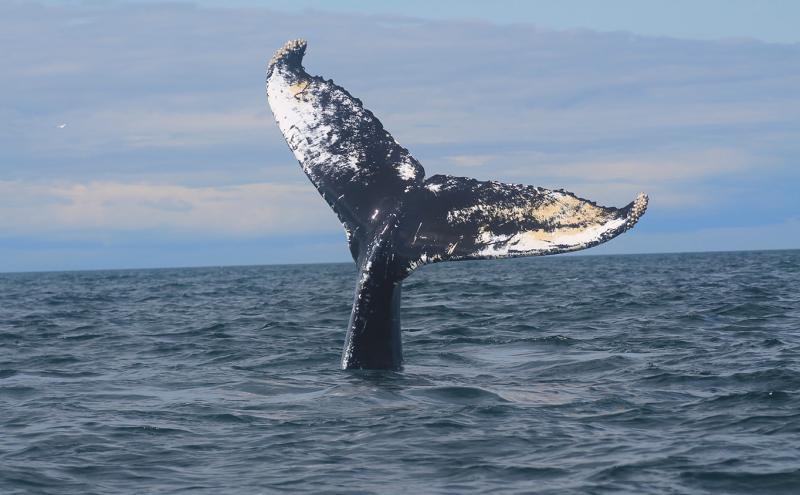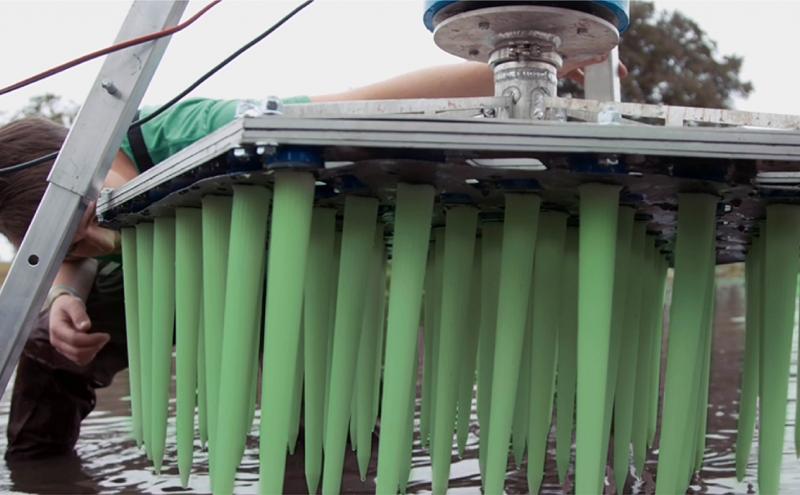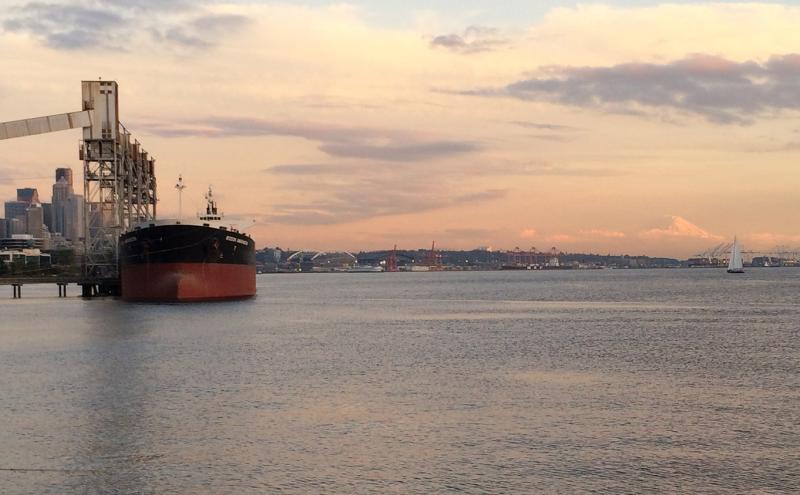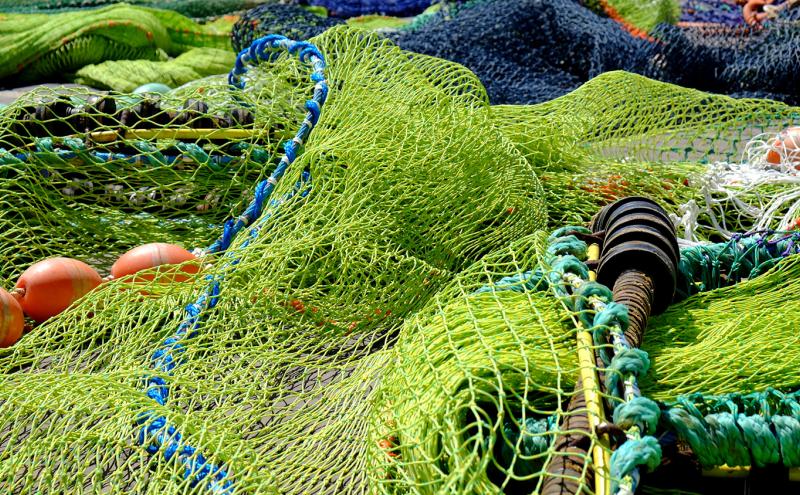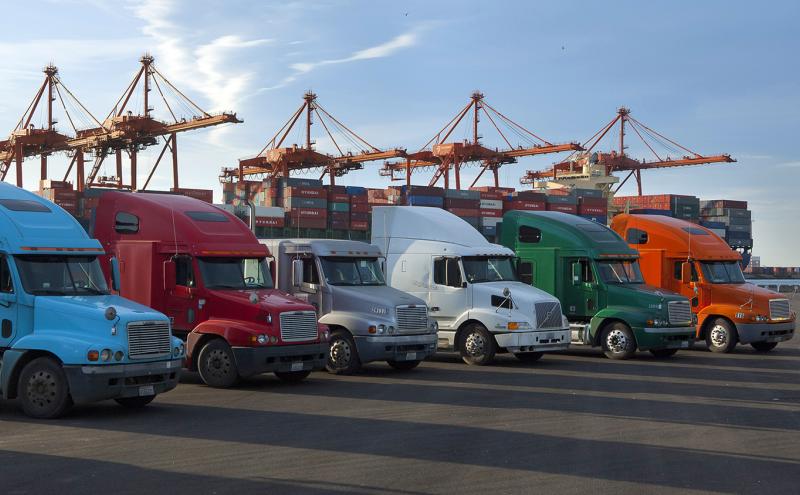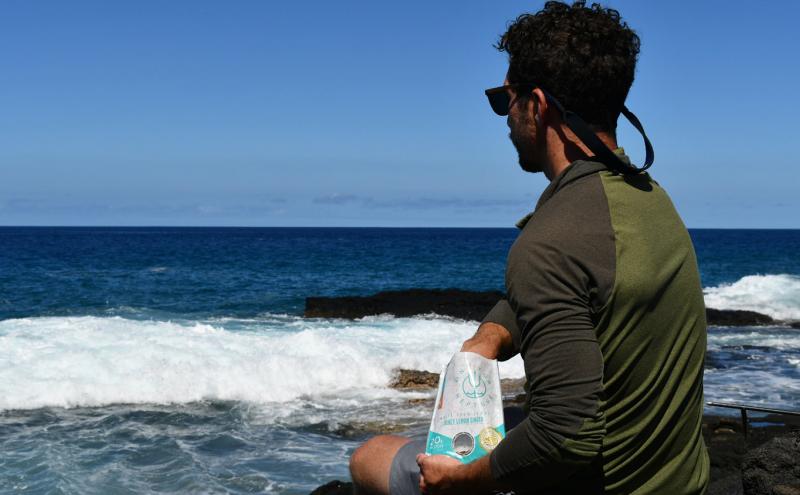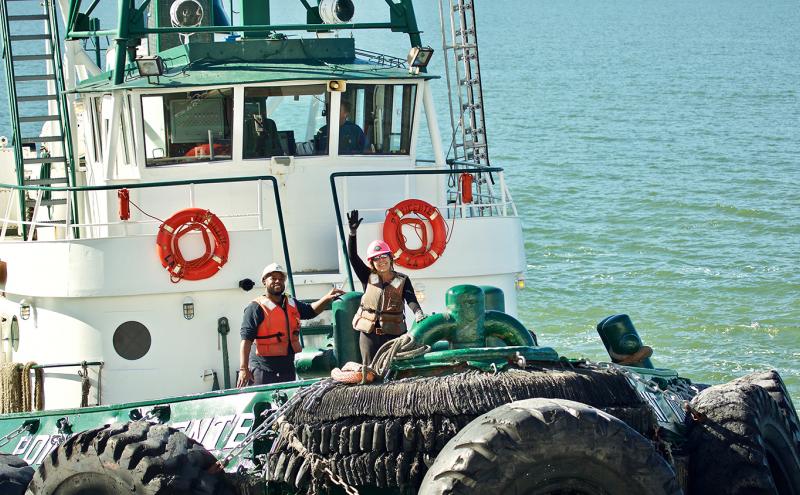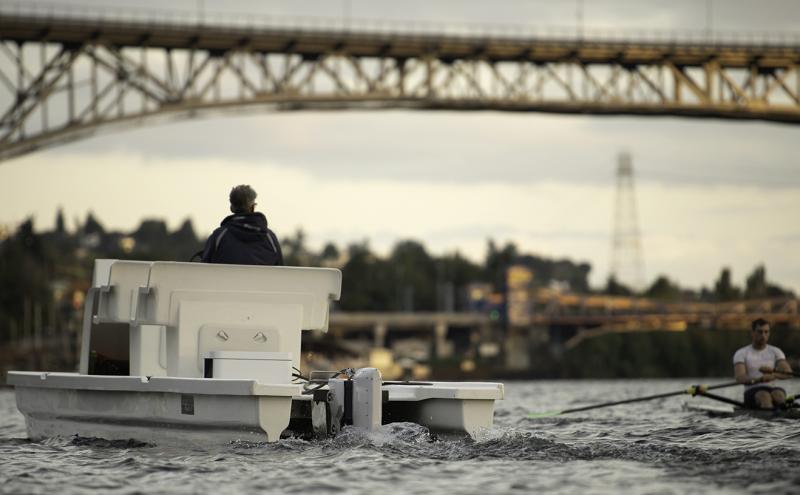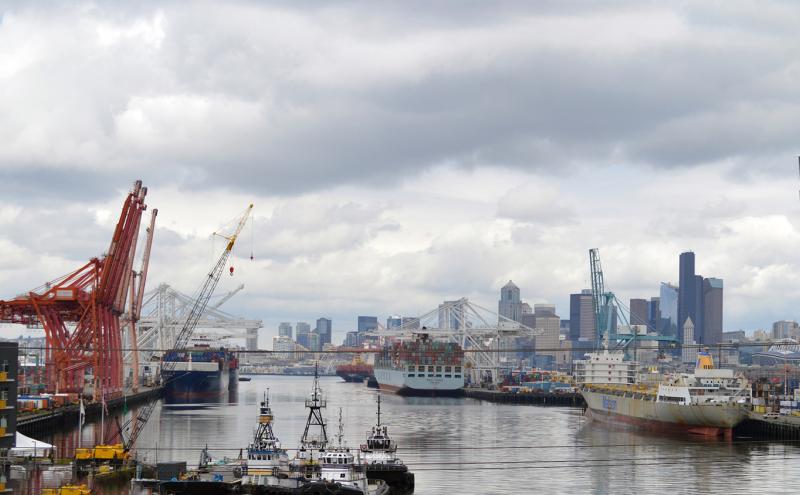
Washington Maritime Blue, the Port of Seattle, and WeWork Labs have partnered to launch Washington’s first maritime accelerator to help maritime companies innovate and grow. New ideas in one of the most traditional sectors in Washington are critical for a thriving economy and to protect our planet, precious natural resources, and ocean life.
This series showcases the 11 companies participating in the inaugural cohort. These companies worked for four months out of WeWork Labs’ Seattle location with mentors and advisers to help navigate challenges. In April, the startups shared their innovative solutions in a Virtual Showcase.
The second cohort of the Maritime Accelerator will be launching soon. Stay tuned!
Tyler Allen grew up running around his father’s Ballard shop, MER Equipment, a third-generation family-owned custom builder of maritime generators. His father took over the business from his grandfather, who started the business in 1964 after a career as a fisherman and then a fleet manager in the Alaskan fishing industry.
Allen didn’t stray from his maritime roots and today leads the engineering division at MER Equipment. MER’s engineering division functions like a startup, leading with new ideas and innovation, so when Allen noticed that engine manufacturers weren’t keeping pace with emissions requirements, he started looking for a solution.
“Emission requirements for marine diesels were tightening up. We were concerned because engine manufacturers weren’t providing the exhaust systems for their engines we would need to keep our customers in compliance with regulatory requirements. So, we started looking for our own solution, an aftertreatment system we could add,” he said.
Repurposing technology
While investigating more traditional solutions, Allen zeroed in on an alternative exhaust aftertreatment system that had been under development by the big three automobile manufacturers in the 1990s, and later abandoned in early 2000s when they went through bankruptcy. He tracked down the lead physicist, Mark Hemingway, and the two began working to find a way to adapt the technology for the marine industry.
MER considered partnering with Hemingway to develop a product for their engines and generators, but ultimately decided to stick to building generators and let someone else invest the time and effort to develop an aftertreatment system they could purchase.
Recognizing the disruptive potential of the technology and the number of problems it could address across a wide market segment, Allen continued to work with Hemingway independently. They made a tour of the Seattle towing companies, naval architecture firms and shipyards, holding round tables to educate industry leaders and identify the specific problems the technology could address.
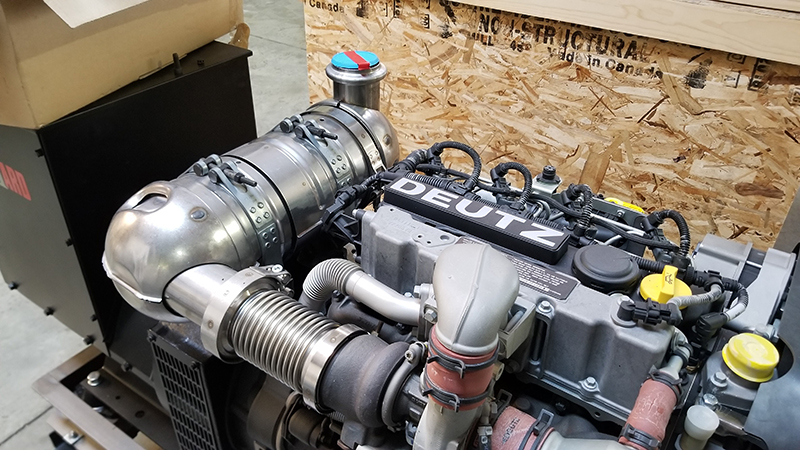
They had a good solution for an acute problem. With Mark’s technical expertise and Tyler’s market knowledge and connections, they made a pretty good team. So together, they created Freeboard Sound Solutions to realize the disruptive potential of this technology in the marine market.
Freeboard Sound Solutions uses SNARRE technology, an advanced scrubber system designed to reduce nitrogen oxides and particulate matter exhaust emissions. It will take a more than a decade to replace diesel engines on most vessels, so this exhaust system can be used on old and new engines to reduce pollution that's harmful to human health and generates greenhouse gas. It’s simpler, more economical to purchase, smaller and less costly to install on ships and equipment than other systems in use today.
Maritime Accelerator
Hemingway and Allen applied for the Maritime Blue Accelerator program to move the concept of Freeboard forward as a social purpose C Corporation.
“The timing of the accelerator program could not have been more perfect for us,” Allen said. “It really helped us learn to articulate what we were trying to accomplish and why. Not just the why, but the why behind the why. We learned a lot of valuable lessons there. We were creating our company in real time with access to the best mentors available to help guide us as we progressed. “
Along the way, Allen and Hemingway discovered they had divergent goals for the direction of their company.
“It was a painful realization, but one of the tremendous advantages of the Accelerator is it accelerates everything. In this case, Mark and I came to realize we weren’t aligned as founders. I’m actually grateful for that. It saved us both a lot of time, in some respects.”
Due to these differences, along with complications from COVID-19, the tightening of Venture Capital funding, and the relaxing of environmental regulations by the current administration, the two decided to shelve the launch of Freeboard for the time being.
For Allen, joining the Accelerator program provided an opportunity to access a different part of the Seattle economy that had not traditionally been accessible to the maritime industry.
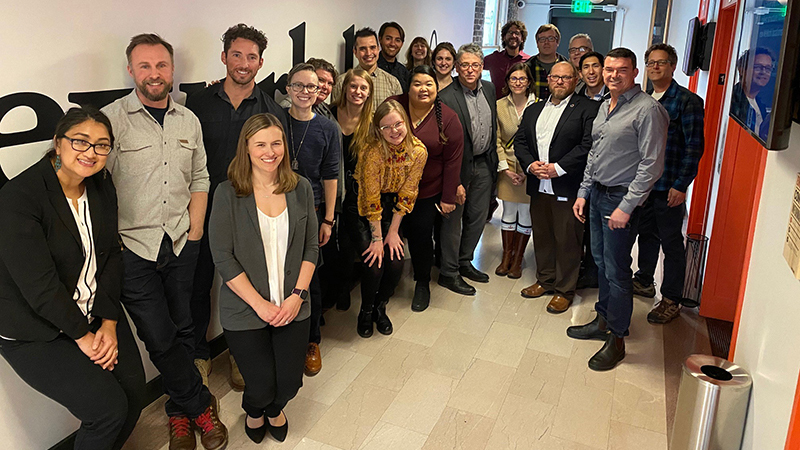
“Seattle has a rich maritime heritage, but it’s been a bit displaced by tech,” he said. “There has not been as much focus in schools on trade skills required for marine and it’s become a less friendly place for the industry. This program is a lifeline for marine to help us learn to innovate, gain access to capital and maintain relevancy in a changing city. If we approach this right, and we can access the tools tech has brought to Seattle, rather than being displaced, Seattle will become one of the great maritime innovation centers of the world. With our geographic position, marine markets and industry, we already have all the building blocks to do it.”
Allen said the Accelerator did a wonderful job giving him new skills: learning how to give presentations, networking with angel investors, and aligning personal values with work.
“It was a crash course on how to take an idea that fixes a problem and turn it into something you can take to market,” he said. “Ultimately though, in this case I also learned when an idea might not be ready. That was a hard lesson, but a really, really valuable one.”
He said the maritime industry is an untapped sector for the startup culture.
“The startup culture and financing could help accelerate innovation in maritime,” he said. “We’re one of the oldest industries in the world and we’re learning how to operate in the 21st century. Traditionally, maritime lags 20 years behind other industries in how things are done. If we can drive the economy with this underutilized sector of the market, it will be a lifeline. If maritime doesn’t innovate we’re going to get displaced. We won’t be relevant, and we’ll be crowded out by market segments that are more valuable.”
Next steps
Allen said the next steps for Freeboard will depend a lot on what happens over the next year.
“Exhaust emission technology is not cheap,” he said. “Nobody wants to put an extra quarter million dollars of equipment on a boat if they don’t have to. The current environmental regulation climate has not led anyone to spend a lot of money investing in emissions technology. Hopefully when people start to follow science on global warming, Freeboard will be a solution that people are seeking.”
He said more and more people in the industry are realizing the importance of reducing emissions.
“Many people have kids and are deeply concerned; I am one of them. It makes sense for the bottom line. Many people would like to do it, but if they do it voluntarily but competitors are not, it drives up their costs. But if they know regulation is coming they may see an opportunity to get out in front.”
While he presses pause on his startup, Allen said he is excited for the future of the Accelerator program and to see which startups are participating in the second cohort.
“There are a ton of innovators out there with great ideas; I’m excited to see what they bring to the table,” he said. “This program helps make those ideas a reality. It’s an exciting time to be in the startup field. Hopefully what’s going to happen in the next six months or year will drive a lot of financial decisions. I’m hopeful for what we might see here. I’m planning on reviving Freeboard eventually. You need just the right break in the swell to launch. Timing is everything. The Accelerator taught me that too.”

